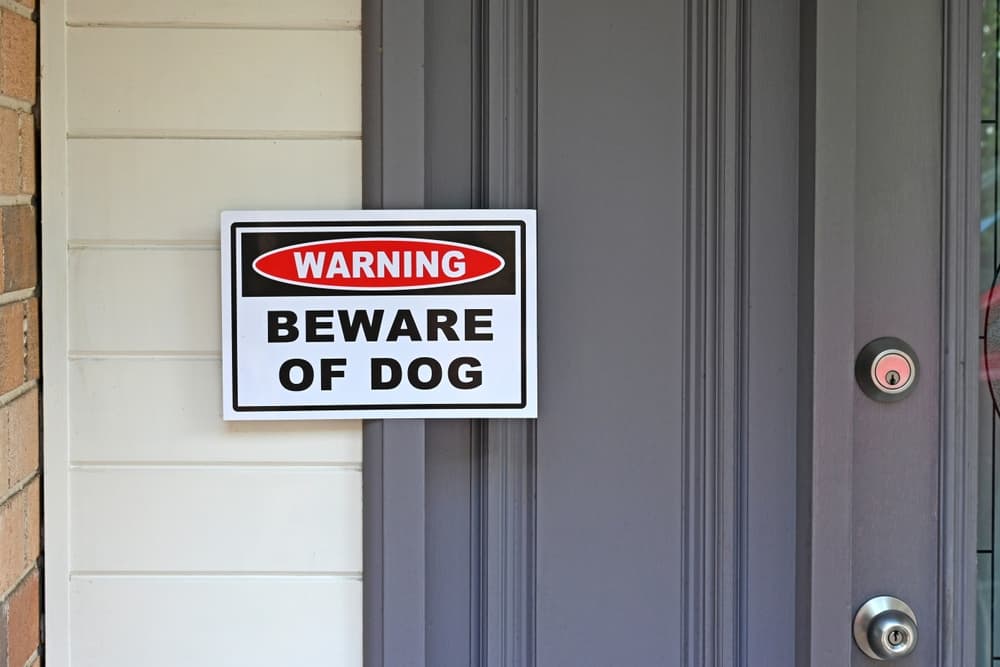If you’ve been bitten by a dog in Virginia, understanding your legal options can determine whether you recover compensation or bear the costs yourself. Dog bites can result in serious physical harm and long-term trauma. Yet many victims are unsure whether they have the right to hold the owner accountable.
Dangerous dog laws in Virginia hold pet owners responsible for compensating the victims and losses caused by their carelessness or disregard for safety. Taking proper legal steps can help ease the financial burden of your recovery. However, before you begin seeking justice, learn what the law says from a Fairfax dog bite attorney who can also help enforce your rights.
Dangerous Dog Laws in Virginia, Owner Responsibilities, and Liability
Dog ownership in Virginia comes with responsibilities, especially when a dog causes injury to a person or another animal. State law provides a structured process for determining when a dog is legally classified as dangerous or vicious and outlines what consequences and obligations follow such a designation. Whether you’re a dog owner or someone harmed in an incident involving a dog, it’s vital to understand how these statutes apply and what they require.
Dangerous Dog Classification in Virginia

Under Va. Code § 3.2-6540, a dog may be declared dangerous if it has attacked and seriously injured a person or another domestic animal that is owned by someone else. Serious injury refers to severe harm, other than sprain or strains, that requires significant medical attention, such as broken bones, deep lacerations, or any serious disfigurement or impairment that can potentially cause death.
However, the statute also lists key exceptions. The court may not find the dog dangerous if the dog was provoked, defending itself or its owner, or if the injury occurred during lawful hunting or herding activities. The law does not rely on breed or size when assessing danger—it focuses entirely on behavior and the circumstances surrounding the incident.
Once a report is made, a local animal control officer may file a summons for a hearing in district court. The dog owner will be allowed to appear and defend against the dangerous dog designation. Based on the evidence presented, the court must determine, beyond a reasonable doubt, whether the dog meets the legal definition.
What Happens After a Dog Is Declared Dangerous?
If a court establishes that a dog is dangerous, the owner is subject to several mandatory requirements, each designed to reduce the risk of future harm:
- The dog must be registered with the local animal control office and wear a special identifying tag.
- The owner must confine the dog indoors or in a locked outdoor enclosure and use a muzzle and leash when taking the dog outside.
- The owner is required to purchase at least $100,000 in liability insurance or post an equivalent surety bond to cover any future injuries.
- The dog must be sterilized, microchipped, and kept under strict supervision.
- A visible warning sign must be placed on the property to alert others of the dog’s status.
Failure to adhere to these legal directives can result in misdemeanor charges, fines, and possible seizure or euthanasia of the dog.
Vicious Dogs and Felony-Level Liability
While the term “dangerous” applies to animals that have caused harm, vicious is a higher threshold under Va. Code § 3.2-6540.1. A dog may be found vicious if it kills or severely injures a person, especially if it has already been classified as dangerous in the past.
In such cases, the law allows no alternative but euthanasia. The court may also impose restitution requirements to cover medical costs, lost income, or veterinary expenses for the victim or their family. Suppose an owner recklessly fails to control a dog with a known history of aggression, and it causes serious injury. In that case, the owner can face a Class 6 felony charge under Virginia criminal law.
Leash Laws in Virginia
Virginia’s leash laws are primarily governed at the local level, as the state does not impose a uniform leash requirement under Title 3.2, Chapter 65. Localities require dogs to be leashed in public spaces, except in designated off-leash dog parks.
Under § 3.2-6538, local governments are authorized to adopt ordinances mandating that dogs be restrained or leashed when off the owner’s property. These ordinances often require dogs to be under immediate control, either through a physical leash or, in some cases, voice command if the dog is well-trained and poses no risk. Violations of leash laws are classified as Class 4 misdemeanors, with fines up to $250, though penalties vary by jurisdiction.
Additionally, the law allows localities to require dogs to be confined, leashed, or under human supervision to prevent them from running at large, defined as roaming freely without restraint. Also, Virginia Code § 3.2-6542 establishes the Dangerous Dog Registry, a public record maintained by the Department of Agriculture and Consumer Services. This registry lists dogs classified as dangerous under § 3.2-6540, requiring owners to register their dogs after a court finding.
The registry includes details such as the dog’s description, the owner’s information, and compliance requirements. Accessible to the public, the registry enhances community safety by informing residents of potentially dangerous dogs in their area. Registered dog owners must update the Department with any changes, such as the dog’s relocation or death, and failure to comply can result in penalties.
Legal Safeguards and Enforcement
Virginia law ensures due process in dog-related adjudications. Hearings must be held within 30 days of the summons unless good cause is shown for delay. The local animal control authority and the dog owner may present evidence and call witnesses. The court’s decision depends on the facts of the incident, not on speculation, appearance, or breed stereotypes.
Animal control officers play a key role in enforcing these statutes. They may seize and hold a dog pending a hearing, inspect facilities where a dangerous dog is kept, and investigate violations of confinement or notification duties. Any subsequent incident involving a dog previously classified as dangerous may result in elevated criminal liability for the owner, especially if they failed to meet any of the legal requirements.
Civil Liability and Dog Bites
Although Virginia generally follows the “one-bite rule,” where an owner may not be liable unless they had reason to know the dog was dangerous, this does not provide blanket immunity. If a dog escapes confinement or violates local leash laws and causes injury, the owner may be found negligent, even if the dog had no prior history of aggression. Local ordinances across Virginia, including leash laws and animal restraint regulations, can also influence the outcome of a civil claim.
Victims of dog attacks may pursue damages through a personal injury lawsuit, especially if they can demonstrate that the owner did not control the dog, violated local ordinances, or ignored a known risk. Courts will consider evidence such as veterinary records, prior complaints, and witness statements to determine liability.
Virginia’s dog laws reflect a balance between protecting the public and allowing responsible pet ownership. The legal distinction between dangerous and vicious dogs carries serious consequences for the animal’s future and the owner’s legal and financial responsibilities.
If you are a dog bite victim in Virginia, these laws offer a clear path to justice through the courts and civil compensation. Whether you are facing a dangerous dog designation as an owner or seeking legal remedies after a dog attack, it’s vital to consult a Virginia dog bite lawyer who will apply the state and local regulations to your situation.
Proving Negligence in a Dog Bite Case
To succeed in a dog bite case based on negligence, you must show that negligence occurred. Unlike strict liability, which doesn’t always require proof of fault, negligence claims rely on establishing that the defendant breached a legal duty. It often involves an analysis of the circumstances leading up to the incident.
In Virginia, you must prove that the following elements exist in your case to bring a claim against the dog owner:
Duty of Care
The first step is demonstrating that the dog owner owed a legal duty to prevent foreseeable harm. In most cases, owners are expected to control their pets and bar them from posing a risk to others. This duty can arise from leash laws, local ordinances, or general standards of reasonable behavior, such as keeping aggressive dogs restrained or warning others about a known risk.
Breach of Duty
Next, you must demonstrate that the dog owner breached this duty. This can mean allowing a dog to roam freely in a public space, failing to warn a visitor about the dog’s history of aggression, or ignoring signs that the dog was acting unpredictably. Evidence such as eyewitness accounts, prior complaints, or video footage can help establish that the owner acted carelessly or failed to take proper precautions.
Causation
A successful claim must also establish that the injury directly resulted from the breach. In other words, the plaintiff must show that the owner’s failure to act reasonably caused the bite. If the dog escaped through a broken gate that the owner never repaired, that failure may be considered the direct cause of the attack.
Damages
Finally, you will have to show that you suffered actual harm as a result of the incident. It may include physical injuries, emotional distress, medical expenses, and lost income. Your Virginia dog bite attorney may have to rely on medical records, therapy bills, and expert testimony to strengthen the case by clearly outlining the impact of the bite.
Negligence claims often require more evidence and legal argument than strict liability claims, especially in states that follow the “one bite rule” or where owners argue they had no reason to suspect the dog was dangerous. However, when properly supported, a negligence-based case can still provide a clear path to compensation for the trauma you have endured.
Legal Options for Dog Bite Victims in Virginia

Victims of dog bites in Virginia can pursue legal recovery, but the legal process depends on the circumstances of the incident and how the dangerous dog laws in Virginia apply to those facts. Virginia does not follow a strict liability standard for dog bites, which means you must prove that the owner acted negligently.
For example, if the owner let the dog roam freely in a residential area, those facts may support a negligence claim. The victim must show that the negligence directly caused the injury.
Also, if the dog owner violated a leash law, containment regulation, or other local ordinance at the time of the bite, you may have a claim based on negligence per se. In this scenario, the legal violation itself can be used as evidence of negligence.
A premises liability claim may apply if the dog bite incident happened on private property and the owner failed to warn lawful visitors of the potential danger. The duty owed by the premises owner varies depending on the victim’s status, such as guest, licensee, or trespasser. Generally, landowners must protect guests from known dangers, including aggressive pets.
In some cases, dog bite victims can also have a potential claim against a landlord or property manager, particularly if the attack occurred in a common area or if the property owner knew that a tenant’s dog was dangerous and did not address the risk.
Additionally, you may rely on a renter’s or homeowner’s insurance to cover your dog bite injuries, even when the incident takes place off the owner’s property. Victims can often file a claim directly with the insurance carrier, which may lead to a settlement without filing a lawsuit. However, insurance companies may resist large payouts unless liability is clear and well-supported by evidence.
A detailed investigation involving animal control reports, medical records, and witness statements is key to building a strong case. It is advisable to work with a Virginia dog bite lawyer to assist in determining which legal option offers the strongest path to compensation.
Get Help With a Dog Bite Claim Today
If you or a family member has suffered an injury in a dog attack, don’t wait to find out what the laws say about your situation. Understanding Virginia’s dog laws can provide leverage in pursuing a winning claim. A Virginia dog bite lawyer can assess your situation, explain your legal options, and help you take the steps toward recovery. Contact your personal injury attorney today to protect your rights and pursue the monetary support you deserve.

